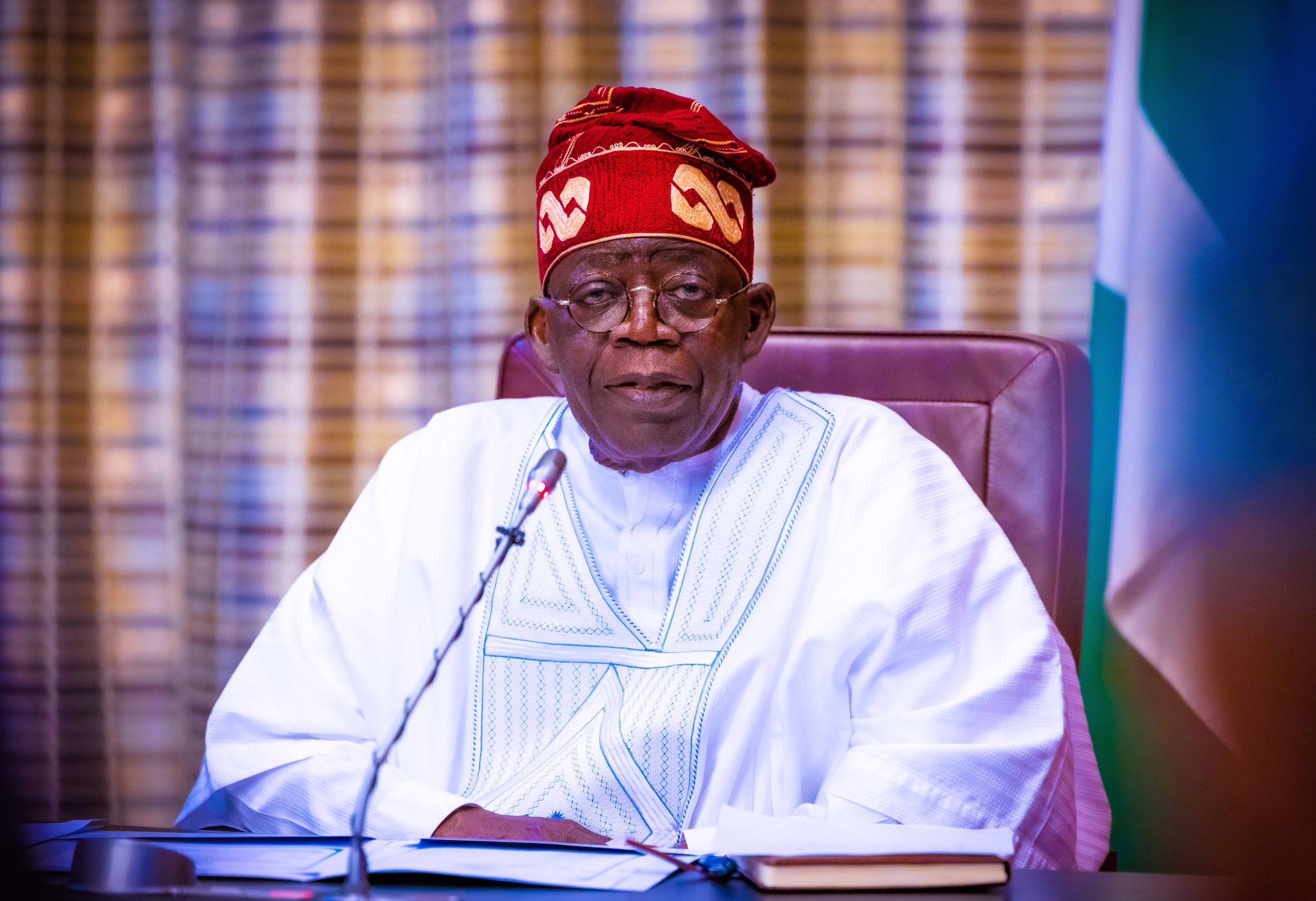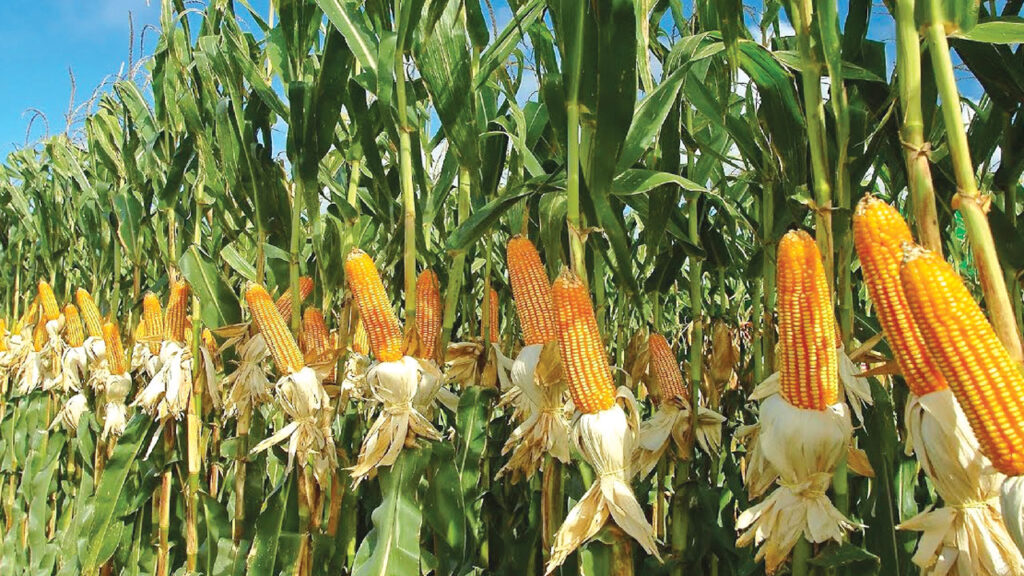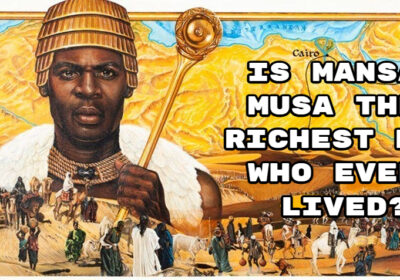Dissecting PresidentBola Tinubu’s Unforgettable Campaign Moments of Agbado, Cassava& Garri

President Bola Ahmed Tinubu, the current President of the Federal Republic of Nigeria, captured the attention of Nigerians with his remarkable campaign moments that revolved around the significance of corn, particularly about agbado, cassava, and garri. This article explores the intriguing connection between President Tinubu and these staple food items, shedding light on the impact they had on his campaign messages, his current presidency, and the agricultural sector of Nigeria.
The Culinary Significance of Corn
During his presidential campaign as the candidate of the All Progressives Congress (APC), President Tinubu drew attention to the under-policing issue in Nigeria. He proposed the recruitment of 50 million youths into the army to combat insecurity while highlighting the importance of locally grown crops such as Cassava, Corn, and Garri. The mention of corn in his campaign messages became a recurring theme, sparking curiosity among the Nigerian populace.
President Tinubu stated, “We are facing a scarcity of law enforcement, and we find ourselves competing with armed robbers and bandits for the recruitment of unemployed youths. With 33 percent unemployment, why not recruit 50 million young people into the army? They will enjoy our locally grown cassava, corn, yam, and other crops.” His emphasis on the consumption of corn and other agricultural products showcased his commitment to addressing both the country’s security concerns and the economic well-being of its citizens.
Tinubu’s Peculiar Fascination with Corn
President Tinubu’s fascination with corn became further evident when he criticized former President Olusegun Obasanjo for allegedly spending a significant amount of money on electricity while neglecting to make payment for a simple roasted corn. This contradiction raised questions about the specific significance of corn in Tinubu’s worldview.
In his attempt to clarify his viewpoint, President Tinubu explained, “They squandered more than $16 billion, disregarding the fact that a transmission line acts as a superhighway for generated power. Yet, they couldn’t even spare enough for a roasted corn as a token of appreciation for that electricity.” These remarks highlighted his belief that even the smallest gestures, such as enjoying roasted corn, hold value and should be recognized.
AGBADOnomics: Elevating Corn to a Quasi-Field of Study
In December 2022, during another campaign event, President Tinubu introduced the term “AGBADOnomics,” effectively raising corn to the status of a quasi-field of study. This term emphasized his deep-rooted affinity for the “agbado” delicacy and positioned corn as a vital component of his vision for Nigeria’s future.
To demonstrate his commitment to corn-related initiatives, President Tinubu donated 370 bags of corn flour and ₦500,000 to the Zamfara State Female Ulamah Association. Senator Kabiru Garba Marafa, the Coordinator of the Zamfara State Presidential Campaign Council (ZMPCC), announced and presented these contributions during a one-day seminar organized by the Zamfara State Female Ulamah Association in collaboration with the Zamfara State Zakkat and Endowment Board.

Positive Outcomes in Tinubu’s Electoral Agenda
The incorporation of corn into President Tinubu’s electoral agenda has yielded positive outcomes, particularly in the agricultural sector. Farmers from all 36 states of the federation and the Federal Capital Territory (FCT) have recognized the opportunities presented by Tinubu’s agricultural plans. The Asiwaju Farmers Forum, an umbrella organization for these farmers, has identified various investment prospects within the cassava and maize value chains, as proposed by President Tinubu.
Mr. Retson Tedheke, the leader of the Asiwaju Farmers Forum and national coordinator of the Nigerian Farmers Group and Cooperative Society (NFGCS), stressed the importance of a distinct approach to tackle Nigeria’s economic challenges. He emphasized the need to engage the largely uneducated population through accessible avenues, particularly in farming, to prevent frustration from escalating into violence with catastrophic consequences.
Retson said, “We must take a straightforward yet fiercely patriotic approach. Let’s reason together. Given our largely uneducated population, our focus should be on easily attainable opportunities, particularly in farming. When a population lacks education like ours, we seek out accessible avenues to engage many people, even with the aid of machines. It is crucial to involve our people, especially those in rural Nigeria, on a significant scale before their frustration erupts into violence with catastrophic consequences.”
Nigerians continue to ponder the specific significance of corn in President Bola Tinubu’s campaign message. The prominence of corn in most of his speeches and initiatives has captured their curiosity, leading to discussions about the cultural, economic, and political implications associated with this staple food item.
From Slips & Speculation to Victory: Decoding Tinubu’s Campaign Blunders & Gaffes
President Bola Ahmed Tinubu’s political journey to the presidency was marked by a series of gaffes and verbal missteps. These incidents, often magnified by his opponents, raised questions about his suitability for office. But the question remains, was Bola Tinubu sick or it was just a political strategy to keep his name on everyone’s lips and his face in everyone’s eyes?
Allegations of Illness and Political Comic Strip
There were allegations that President Bola Ahmed Tinubu’s ‘illness,’ if there was any, turned him into a political comic strip. His seemingly unintelligent speeches, statements, gaffes, and snafus on critical national issues pointed to the fact that Tinubu was ill, or so it was claimed.
Tinubu’s Gaffes and Missteps: A Questionable Analogy
During an Arewa interactive committee meeting in Kaduna on climate change, Tinubu made an unfortunate analogy: “It’s a question of how do you prevent a church rat from eating poisoned holy communion.” This statement raised eyebrows and drew criticism, as it failed to convey his intended message effectively. And, there were more like that.
Misinterpretation and Clarification
Following that Kaduna speech, the APC Campaign Council, through Bayo Onanuga, started to clarify what Tinubu meant. According to Onanuga, Tinubu inadvertently said Governor El-Rufai “turned a rotten situation” in Kaduna into “a bad one,” when he meant to say “to a great one.” The campaign council attributed this misinterpretation to a mere slip, common among leaders in political seasons.
Election Manifesto and Buhari’s Foreign Loans
When unveiling his election manifesto at Aso Rock in Abuja and defending President Buhari’s appetite for foreign loans, Tinubu made another statement that raised concerns. He said, “The whole of America deserves to be in prison if loan is a crime.” This remark further fuelled the perception that Tinubu’s speeches lacked clarity and coherence.
Opponent’s Slip of Tongue
Former Vice President Atiku Abubakar, one of Tinubu’s main opponents, also had his slip of the tongue during an interactive session with the Arewa Joint Committee in Kaduna. Atiku stated, “This is what the Northerner needs, it doesn’t need a Yoruba or Igbo candidate, I stand before you as a Pan-Nigerian of northern origin.” This slip momentarily shifted the attention away from Tinubu’s gaffes.
Impact on Tinubu’s Campaign
Many believe that Tinubu’s tendency to make gaffes and verbal missteps influenced his decision to avoid one-on-one interviews. The fear was that these gaffes could overshadow the core message of his speeches. Some critics argued that his opponents strategically capitalized on these moments to undermine his credibility, while his supporters emphasized his track record and experience.
The Health Question
Some speculated that Tinubu’s gaffes were a consequence of his health, pointing to symptoms such as slurring, nasal sounding, heavy breathing, and difficulty with speech rhythm and movements. The assumption was that Tinubu was suffering from dysarthria, likely caused by brain damage or age-related changes. However, it is unclear whether his health condition played a significant role in his gaffes or if they were purely the result of the high-pressure political environment.
Tinubu’s Gaffes in Perspective
Ultimately, the impact of Tinubu’s gaffes and missteps during his campaigns and the subsequent election outcome rested with the Nigerian people. As voters cast their ballots, the controversy surrounding Tinubu’s verbal blunders served as a reminder of the importance of choosing a leader who can effectively articulate and communicate their vision to the nation.
Conclusion: The Presidency of Bola Ahmed Tinubu
In the end, Tinubu’s gaffes were viewed by many as innocent mistakes rather than deliberate shortcomings. Despite the controversies surrounding his verbal missteps, Tinubu emerged as the President of the Federal Republic of Nigeria. With his presidency now in motion, the focus has shifted from his gaffes to the challenges and opportunities that lie ahead for the nation.
Today, as real governance unfolds, the Nigerian people no longer see or hear those gaffes that once dominated discussions. The country is now looking to Tinubu’s leadership, policy proposals, and vision for the future as they embark on this new chapter in Nigerian history.


![The Six Triple Eight. (L-R) Sarah Jeffrey as Dolores Washington, Pepi Sonuga as Elaine White, ... [+]Laura Radford/PERRY WELL FILMS 2/COURTESY NETFLIX](https://theaccomplishmagazine.com/wp-content/uploads/2024/12/0x0-400x280.webp)
Leave a Reply